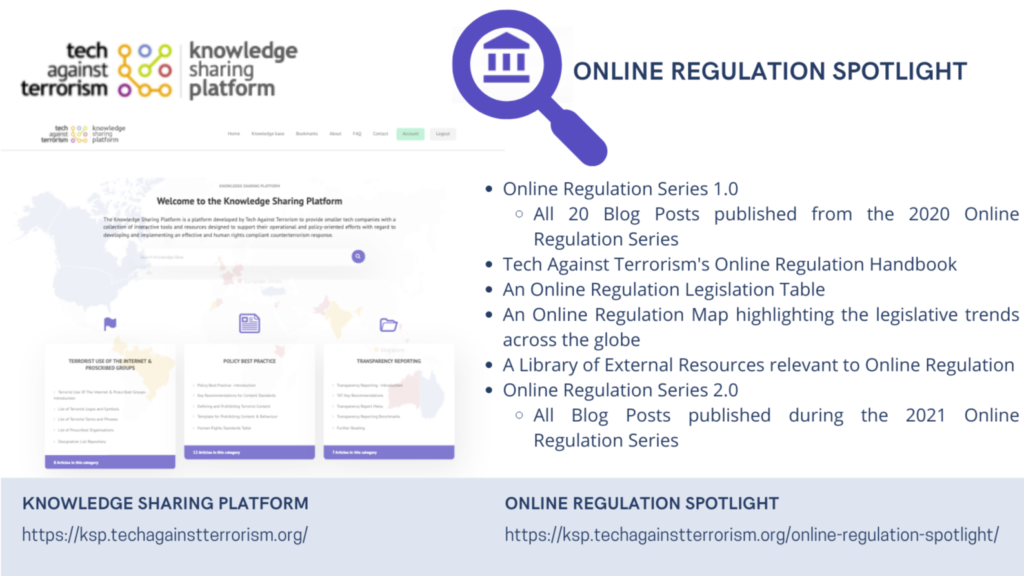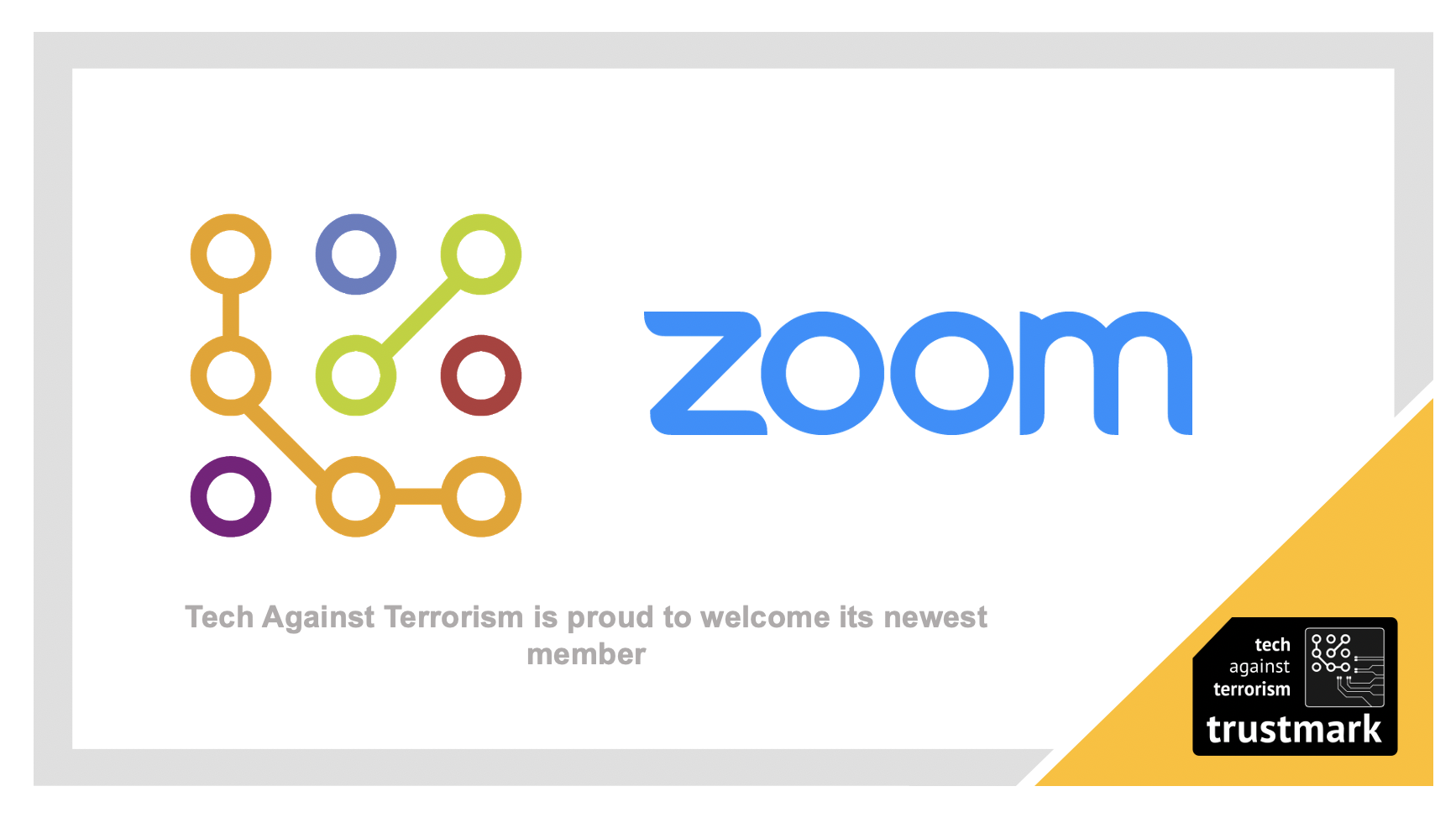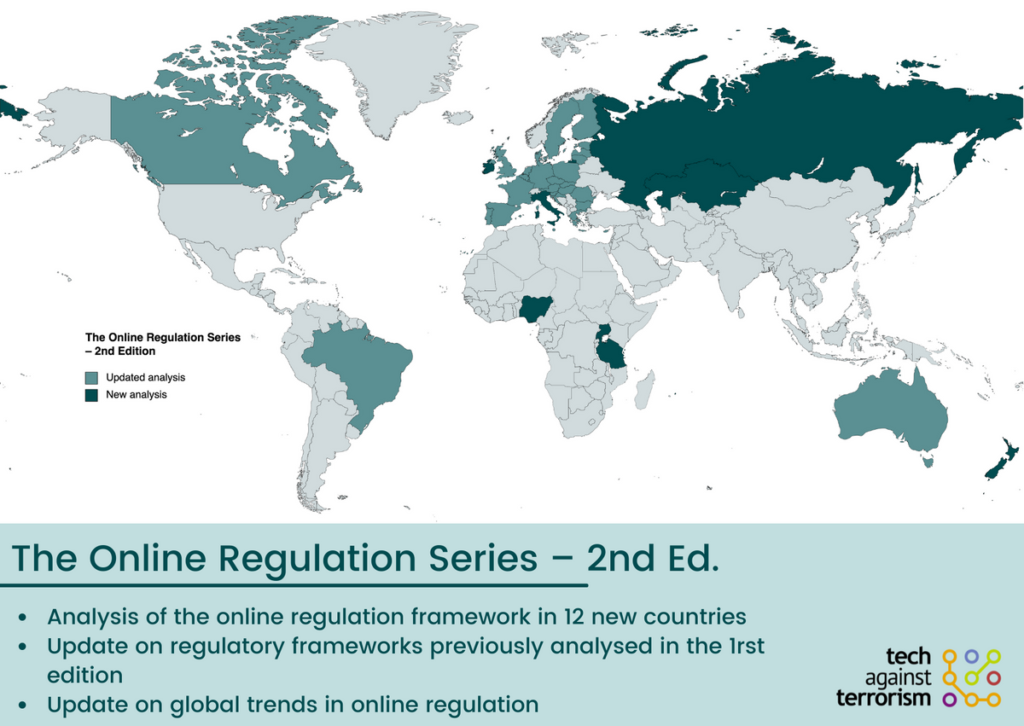Reader's Digest – 26 November 2021
Our weekly review of articles on terrorist and violent extremist use of the internet, counterterrorism, digital rights, and tech policy.
Webinar Alert!
- For Tech Against Terrorism and GIFCT's December webinar, we will conclude the year by looking back at the evolution of the terrorist and violent extremism online threat landscape in 2021, and how tech policy and online regulation have adapted in response. We will open the registration for this webinar next week, keep an eye out for the registration link!
Tech Against Terrorism Updates
- Thank you for joining our webinar this week on “Countering terrorist use of the internet, moderating online content, and safeguarding human rights.” If you were unable to attend and would like access to a recording of this webinar, please get in touch with us at contact@techagainstterrorism.org.
Agenda:
- Johannah Lowin, Chief of Staff and Director of Strategic Initiatives, GIFCT
- Jennifer Bramlette, Legal Officer and ICT Coordinator, UNCTED
- Jason Pielemeier, Deputy Director, Global Network Initiative (GNI)
Dunstan Allison-Hope, Vice President, Business for Social Responsibility (BSR) - Moderator: Maygane Janin, Senior Research Analyst, Tech Against Terrorism

- Our Terrorist Content Analytics Platform (TCAP) Product Manager, Sophie Laitt, participated in the Safety Tech Innovation Network “101” series last month, offering expertise on how websites and platforms can take simple steps to protect themselves from terrorist content. Safety Tech published their summary of the event this week.
- We are excited to open registration for the December TCAP’s Office Hours Sessions, in which we provide a progress update on the platform and answer questions from the public. You can sign up for 1 December at 5pm GMT or 2 December at 1pm GMT here.
Online Regulation Series 2.0
The Online Regulation Series is back for a 2nd edition. This week, we have published blog posts on
Keep an eye out next week for
- Nigeria
- Uganda
- UK
To read all the country analyses from the 1st Edition of the ORS, please see our dedicated Online Regulation Series Handbook. With this Handbook, we provide a state of play of online regulation and share practical insights for tech companies to improve their understanding of the complex and fast changing global regulatory landscape.
Tech Against Terrorism Resource Spotlight
- This week, we officially opened up part of the Knowledge Sharing Platform to the public. The Online Regulation Spotlight collates all of Tech Against Terrorism’s research, analysis, and resources dedicated to online regulation.

- This public page is an important step in making our resources on online regulation even more readily available for smaller tech platforms. This portal will be updated as part of the Online Regulation Series 2.0 which began this month.
Top Stories
- The Biden administration plans to lift the terrorist designation against the Revolutionary Armed Forces of Colombia (FARC), following a peace deal the group signed with the Colombian government five years ago. Individual indictments will remain in place against individual members with new designations issued against at least one splinter group.
- Australia has listed the Hezbollah and the neo-Nazi group The Base as terrorist organisations. Home Affairs Minister, Karen Andrews, added the two organisations to Australia’s designation list, outlawing association, support and membership under the country’s criminal code.
- European ministers have signed off on two rulebooks to regulate online platforms and counter harmful content online. The final versions of the two texts, the Digital Markets Act (DMA) and Digital Services Act (DSA), could be adopted as early as the first half of 2022.
- The European Counter Terrorism Centre’s has announced the creation of PERCI, a platform for EU Member States to request the removal of terrorist content from online services providers. PERCI will be launched to facilitate the coordination of removal requests under the EU regulation on addressing dissemination of online terrorist content passed in April 2021.
To read more about online regulation in the EU, please see our Online Regulation Handbook.
- Facebook has granted the Government of Afghanistan limited posting rights. Despite the Taliban being banned from Facebook, internal policies reveal that specific government ministries, including the Ministry of Interior and Ministry of Health, have been allowed to share content.
- Experts have warned that the acquittal of Kyle Rittenhouse risks emboldening far-right groups across the extremist spectrum.
- During a referral action in the last week of October, Europol worked with internet service providers, including internet infrastructure companies, to target 50 websites supporting Islamist terrorist groups. This resulted in the takedown of 21 websites.
Tech Policy
- Ending online anonymity won’t make social media less toxic: In light of recent government proposals to crack down on online anonymity, Shireen Morris warns that this will not solve abuse on social media. Australia’s Online Safety Act was amended in June to empower the e-Safety Commissioner to require platforms to disclose personal information of alleged online bullies. Morris points out that anonymity is only one factor contributing to online toxicity, with social media algorithms incentivising negativity and fake news to maximise user engagement. There are additional concerns around free speech and privacy, with the removal of online anonymity exposing users to legal threats by politicians. Any anonymity regulation should be balanced by free speech protections, including more robust defamation defences accounting for power imbalances between citizens and state. (Morris, The Conversation, 25.11.21)
To read Tech Against Terrorism’s updated commentary on Australia’s regulatory framework, see our recent blog.
For any questions, please get in touch via:
contact@techagainstterrorism.org
- News (239)
- Counterterrorism (54)
- Analysis (52)
- Terrorism (39)
- Online Regulation (38)
- Violent Extremist (36)
- Regulation (33)
- Tech Responses (33)
- Europe (31)
- Government Regulation (27)
- Academia (25)
- GIFCT (22)
- UK (22)
- Press Release (21)
- Reports (21)
- US (20)
- USA (19)
- Guides (17)
- Law (16)
- UN (15)
- Asia (11)
- ISIS (11)
- Workshop (11)
- Presentation (10)
- MENA (9)
- Fintech (6)
- Threat Intelligence (5)
- Webinar (5)
- Propaganda (3)
- Region (3)
- Submissions (3)
- Generative AI (1)
- Op-ed (1)

